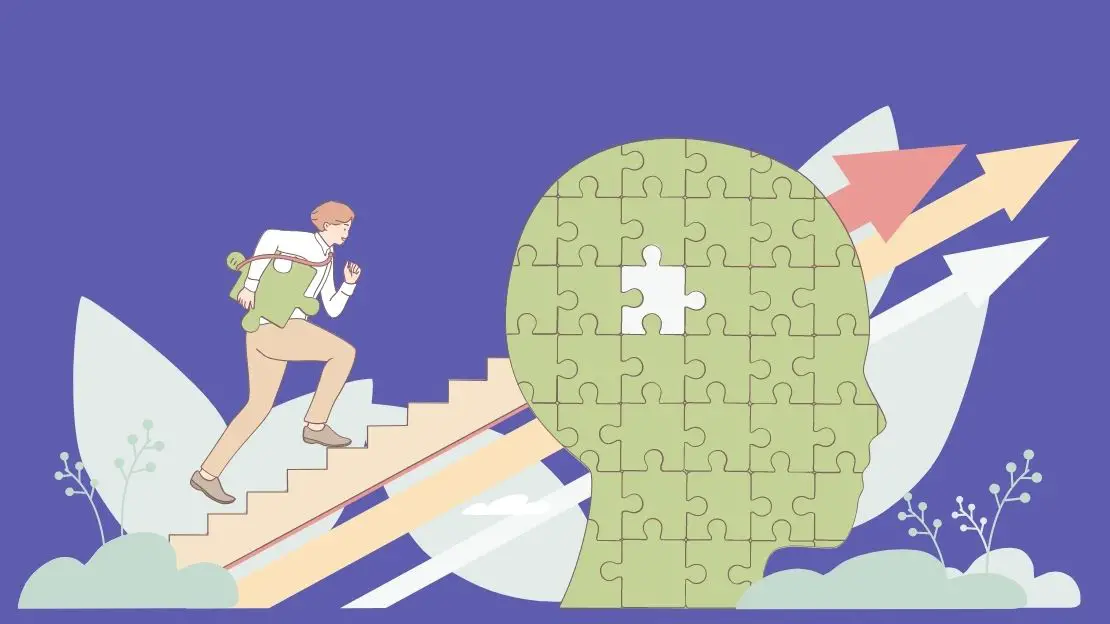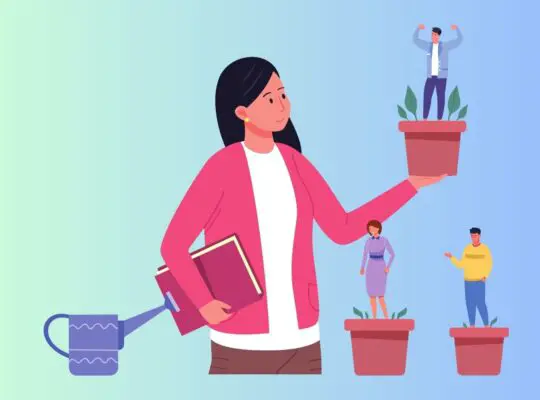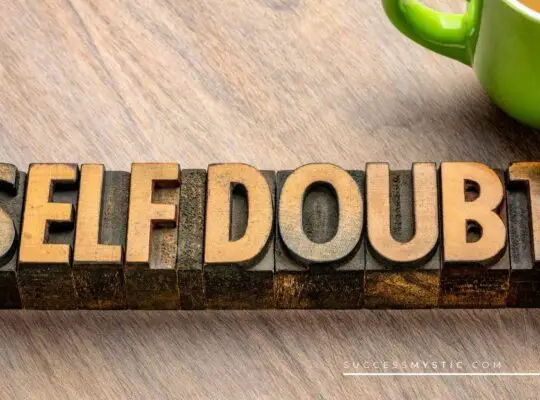Good For Your Spirit, Good For Your Soul, And Great For Your Well-Being
Patience Is A Virtue
Patience is a virtue that many of us seek to behold and one that can be viewed from a philosophical perspective as well as from a scientific approach. Philosophically, the art of patience teaches us intelligent waiting. We learn to hold out for the right relationships, jobs or to watch our investments grow.
We can home in on this craft by learning to trust in the universe and allow life to reveal itself to us by releasing our need to control the outcome of events.
Typically, if an opportunity presents itself to us at the seemingly wrong time, it either wasn’t right for us or it will come back around when it is meant to be. Resisting the plans of the universe only interferes with our ability to live a harmonious life.
Three Different Types of Patience
An article published in the Journal of Positive Psychology 2012 (S. Schnitker) breaks down patience into three different types, called the 3-Factor Patience Scale.
These 3 factors include
Interpersonal – We are called to exhibit patience in our relationships to friends, family, colleagues, clients, and strangers who we
encounter throughout our lives.
Life Hardship – We face life hardships at one time or another that require a measure of waiting for improvement, such as loss of employment, divorce and disease (and treatment).
Daily Hassles – We encounter the daily hassles of life that initiate our patience capabilities the most often, such as waiting in traffic, long lines or on hold when trying to reach a customer service agent.
Surprisingly, it appears that patience is strengthened like a muscle, and the more often we are purposefully applying patient practices, the stronger and more naturally patience will come to us.
The Value of Patience For Relationships
Another important aspect of wellbeing that can be impacted by our ability to live a patient life is our relationships. In practicing patience, we become better listeners, because we are actually listening to what the person is saying (not just hearing it) and not in a rush to finish their sentences and speak our minds on their behalf.
We are not simply formulating our responses, but truly and fully listening to what the other person is saying and allowing them the space to complete their thoughts without our impatience rushing them through or putting words in their mouth. Patience teaches us to become more compassionate, empathetic and forgiving, as patience not only teaches us to slow down, but also to live through our soul and spirit.
We will be less likely to jump to conclusions or quick judgements and fully understand that we are all doing the best we can. We will also be less likely to hold grudges, which does more damage to our own wellbeing than we realize.
Whenever we are expending our energy on something negative (such as judgement, grudges, revenge, vindication), we are wasting that precious life energy that could be used to better a situation.
Even if the best course of action is no action at all, simply letting those feelings of resentment go will do wonders for our spirit, soul and wellbeing.
How Patience Nurtures Your Spirit
Perhaps the highest level of exhibiting patience is in the essence of our spirit.
Every world religion sees patience as a way to know God. Our spirit connects us to a higher being, regardless of religious denomination or preference. It is a belief in an intangible force that guides our life experiences.
Patience calls on us to believe that something better awaits us (such as the idea of heaven or reincarnation) without having concrete evidence, just like our belief in a higher power, with plans greater than we could ever know.
In a religious context, patience is interchangeable with forbearance. Forbearance can be explained as restraint and tolerance under provocation and all religious practices call upon us to persevere in our beliefs despite life’s setbacks and without the visibility of a positive outcome.
It can be said then, that patience is one of the main components of faith.
- Taoism teaches us to accept our lives as they are, use our breath to find peace and allow the universe to reveal all possibilities to us while encouraging us to go with the flow.
- Christianity teaches one that salvation is coming, and we must continue to do good to others while awaiting our savior’s return. Hindu’s believe that we are reincarnated repeatedly until we realize our path and see it through according to our spirit’s destiny.
- Patience teaches us to wait and observe, rather than react and interrupt the natural flow of life (or our spirit’s journey).
In our daily lives, this encourages us to think beyond our immediate selves and act with compassion and empathy when things don’t go according to our expectations.
Patience nurtures your spirit by bringing attention to how you are feeling.
Are you engaging in the activities that bring you joy? If not, allow yourself the space to change course, try something different, without having concrete evidence of the outcome and evolve.
If you feel that you are not living up to your true potential or following your dreams, you are doing yourself a disservice, as well as interfering with the greater good of the universe. You were meant to prioritize your passions and bestow your gifts to others.
Our souls dictate our senses, feelings and emotions. We are driven by the actions of others and how others make us feel. Patience provides us with the opportunity to process our thoughts and feelings before reacting.
By taking the time to create space, we learn on such a deeper level. A quick Google search for ways to nurture your soul will suggest spending time in nature, appreciating your experiences through gratitude, and meditation, to name a few.
These are all improved by practicing patience, but we must learn to slow down in order to carry out these suggestions.
The Value of Patience In Your Professional Life
When we practice patience in our professional lives, our careers flourish as we provide mentorship to those with less experience and seek mentorship from those with greater experience (full cycle).
There is no greater gift to someone who is following the same path as you than to take the time to mentor them and advise them on their own path. Providing an insight into your own experience so that someone can tailor your
advice to their own trajectory, is invaluable.
When you seek out a mentor for yourself, you are also acknowledging that you are humble and respectful of others’ experience, through which you can learn immensely. When we understand that no task is beneath us, we will reap the rewards of learning the ins and outs of a business/role, and our careers will flourish.
As we progress through our career, and take the time to learn each aspect thoroughly, we are able to understand the roles of others in due time, and act as a mentor, or at the very least, a compassionate coworker. You can actually solve a problem much more easily and effectively if you truly understand the problem, rather than only understanding a high-level overview.
Taking the time to understand what others do also allows for relationships to be created and nurtured. The universe places people in our path for a reason and while you may not realize it now, a peer or colleague could be instrumental in your growth later down the line. When you don’t force things or rush through blindly, you allow the universe to unfold before you, guiding you in your ultimate path.
Patience In Goal Setting
When we are able to activate our higher level of patience, we are able to see the bigger picture and set achievable goals because we are not bound by the need for immediate gratification.
When you envision your goals and then lay out the steps needed to achieve them, you will receive gratification at each step, and the rewards for seeing out your goal will be much more valuable.
We can thrive off of incremental gratification when we set and reach smaller goals that are a part of a more encompassing goal. Patience provides us with the opportunity to see a greater result through to the end, (our ideal life), rather than only imagine it.
Patience For Financial Health
Financial health is a major factor in your personal wellbeing. When we incorporate patience into our financial decision-making, we avoid impulse purchases and allow the time and space to see our investments grow and realize their potential.
Patience can help to minimize our financial stress and enhance our wellbeing when we defer funds to a retirement account, for example.
Another situation where this comes into play would be starting a savings account for our child’s college education when they are young. Having a plan, albeit one that we will need to wait out and practice patience to see rewards, is much more satisfying in the end. We can eliminate the nagging worry that results from having no plan, or the inability to defer spending for a greater purpose.
Patience And Karmic Law – Contributions To A Better World
Your spirit, soul and wellbeing are nourished when you contribute to a better world. Deepak Chopra, author and one of the best-known proponents of alternative medicine, speaks in great detail about the karmic laws of the universe.
He explains that “for every single action, there has to be an equal and opposite reaction.” As mentioned previously, patience provides us with the space between experience and reaction.
If we are acting from a place of patience, we can make more thoughtful and purposeful decisions that affect not just our lives, but the lives of everyone around us.
Interestingly, Chopra highlights the main ingredients for improving our karmic energy, which are very closely related to the art of patience:
- Conscious decision making, which allows us the opportunity to react thoughtfully and not out of impulse and possibly with regret.
- Forgiveness, which frees up our energy to expend on positive areas of life, rather than holding onto grudges and negative feelings, which only reinforces and compounds negativity.
- Practicing gratitude, which retrains our minds to focus on the positive areas of our lives, which in turn attracts positive outcomes.
- Seeking personal growth and evolution, which provides us with the timeline we are destined with in order to realize our full potential.
- Mentorship, when given and received, completes the reciprocal process of learning and bestowing wisdom, that benefits both the mentor and the mentee.
- Meditation is essentially a practice of patience that we can invoke at any time.
Patience For Your Wellbeing
When we call upon the art and science of patience in our daily lives, our spirit, soul and overall wellbeing thrive. Practicing the art of science of patience can greatly improve your overall wellbeing. Wellbeing is defined as “the state of being comfortable, healthy or happy” (Oxford).
When we enter a positive state of wellbeing, we gain freedom from stress and anxiety, which alleviates a host of physical symptoms as well as mental health issues.
When we are encounter a perceived stressful situation, our physiological “fight or flight” responses kick in and our stress hormones (cortisol, adrenaline) skyrocket. In our primitive years, this was a reasonable and more infrequent response to a dangerous situation, such as being chased by a mountain lion.
These days, this response is activated on a daily basis, by a multitude of external stimuli such as traffic, excessive email notifications, an upcoming meeting, a toxic relationship and our growing to-do lists.
We are in a constant state of panic and it is so disruptive to our wellbeing. Not only does this constant state of panic affect our mental health, but it also causes adrenal fatigue, which can affect our physical health.
The Mayo Clinic describes adrenal fatigue as “a collection of nonspecific symptoms, such as body aches, fatigue, nervousness, sleep disturbances and digestive problems…caused by chronic stress.”
When we call on patience to walk us through life’s demands, we allow our bodies to remain in a calmer state, thus reducing the level of stress we feel and allowing our adrenals to function properly.
According to Baylor University psychologist Sarah A. Schnitker and UC Davis psychology professor Robert Emmons, “patient people tend to experience less depression and negative emotions, perhaps because they can cope better with upsetting or stressful situations.
They also rate themselves as more mindful and feel more gratitude, more connection to mankind and to the universe, and a greater sense of abundance.”
According to the Mayo Clinic, there is a relationship between patience and wellbeing. Patient people experience fewer low moods, are more empathetic and feel greater gratitude. In fact, patience may even be related to one’s level of happiness.
Quality Sleep
These days, there is a glorification of running on empty. We tend to see ourselves as superior to our peers if we are able to boast that we only need 4 or 5 hours of sleep per night. What we often fail to understand is that sleep is incredibly important to our physical and mental wellbeing. Sleep restores our soul and spirit. Sleep allows for internal organ restoration, hormone regulation and memory consolidation.
Quality sleep provides our minds with the opportunity to process the day’s thoughts and experiences through dreaming. Where patience is the art of delaying instant gratification, we often fail to realize that attempting to get to the next task rather than getting enough sleep, is part of our misdirected quest for instant gratification. If we delay these tasks until the next day, and prioritize our sleep, we will be more productive, able to think with greater clarity and better equipped to make important decisions.
Stress and Anxiety
Stress and anxiety, the antonyms to patience and wellbeing, physically affect our gut (microbiome) and frequently lead to digestive issues and chronic disease, such as Irritable Bowel Syndrome (IBS), constipation and bloating.
Our gut regulates our hormones (including our stress hormones) and the gut is often described as the “second brain.” The American Psychological Association (APA) reports that over 90% of the body’s serotonin production happens in the gut.
This ultimately means that anything affecting our digestive tract is also affecting our mood. When we are rushed, stressed and impatient and suffering from the resulting digestive issues, we are inadvertently causing more harm to our minds (not just our bodies) than we may realize.
How to Build Patience For Yourself
Applying Patience With Purpose
There is scientific research supporting the idea that patience can be applied purposefully and that there is correlation of patience to expectation. Scientists at the University of Southern California – Berkeley (A. Jenkins and M. Hsu) found that “framing effects or making small adjustments to how options are presented or framed, may increase a person’s ability to exercise patience.”
What this means is that the imagination can be used as a gateway to patience. If we simply imagine the outcome of a certain situation before acting on impulse, we use that short window of opportunity to act more thoughtfully and positively.
For example, a separate study in “Psychology Today” suggests that regardless of how hungry a person is, if they are anticipating a long wait for their food, their patience threshold will be higher than if they were not expecting a delay in eating.
Diet
Patience is then seemingly based on expectation and control. Science also suggests that patience can be altered by adjusting your serotonin. Studies show that our levels of serotonin in the brain can influence our levels of patience.
We can increase our serotonin levels (and therefore, patience threshold) organically with exposure to natural light, eating certain foods such as eggs, cheese, pineapple, which have been shown to boost serotonin in the brain.
Positive Associations
Another way that the brain is able to alter our patience is by practicing intentional optimism.
If we mentally create the positive feelings and emotions around an experience and make ourselves feel good about something before it happens, we are more likely to wait for it.
A study in the Journal of Neuroscience in 2013 found that the brains of impulsive and patient people are actually different, and a key indicator is how they experience emotion. Since we have the ability to control our emotions, it can then be deduced that we have the capacity to control our level of patience in any given situation.
Meditation
Patience in itself is a lot like meditation. Mediation requires that you go inward and focus on the present moment (not where you need to be or who you need to call) as well as engage in deep breathing techniques, which help to reduce stress and anxiety.
When you are engaged in your meditation practice, you are allowing your mind to clear itself without forcing anything. You learn, with time (patience!) to let your thoughts flow through your mind freely, but not giving them too much space.
You acknowledge them, but do not become consumed by them. This is a solid lesson in patience, in that it results in no reaction at all.
When you become more comfortable meditating, you can use these skills in any unfavorable situation you encounter in the world. You can hold a mini-meditation session in almost any given scenario.
Mind Over Matter
A study in 2018 found that simply believing you are a patient person can improve your patience significantly. When we imagine that an endless amount of patience is available to us, we are less likely to act impatiently because we believe there is an abundance of patience flooding through us. Sometimes it truly is as simple as mind over matter.
5 Practical Ways Implement Patience In Your Daily Life
- Allowing someone to finish their sentence before finishing it for them, which we often do because we assume, we know what they’re going to say. We could be missing a valuable learning opportunity or important pieces of information, not to mention the underlying disrespect to the person speaking. When we listen, we learn.
- Using the daily inconveniences, we encounter, such as time stuck in traffic or on our morning commute via public transportation to listen to a podcast or an audiobook to further our personal growth and development.
- Puzzles and games can really help build patience, especially those 2000 piece jigsaw puzzles that have very complicated parts.
- Eating mindfully and allowing our senses to fully engage and experience our meals is an act of patience that feeds our soul. Eating mindfully, by taking the time to imagine where your vegetables were grown, savoring each bite and allowing our bodies to fully digest our food without rushing through and off to the next thing, is so important not only biologically, but emotionally as well. You may even notice less bloating or discomfort after eating when you practice mindful eating, or remover yourself from a toxic environment or person while consuming your meals.
- Ending the fallacy of productive multi-tasking. Devoting your full concentration to one project at a time and fully engaging yourself in that one project, and each task within, will produce much more valuable work. By doing so, you will reduce the risk of any lingering guilt in knowing that you sacrificed your best self.
Proactively and enthusiastically put in the work to further your career. Start over, start from the bottom, whatever it takes to fully understand the ins and outs of your chosen profession.
By starting at the bottom and working your way up, your patience adds significant value to your professional growth, in helping you understand the inner workings of the company from all aspects and directions. After all, as the saying goes, “if you are the smartest person in the room, you’re in the wrong room.”
Final Thoughts
Practicing the art of patience and understanding the science of patience can lead to greater life satisfaction by allowing us to enjoy the times in between and appreciate the world around us. It also creates a ripple affect amongst those we meet to send positive energy out into the universe.
The art and science of patience shows us that cultivating patience on a daily basis throughout our lives (and all of the elements that practicing patience calls into play) is good for our spirit, soul and great for our wellbeing. Holistically, we can reap the benefits of a patience practice in countless ways.
When we understand the more abstract art of patience and combine this with the neurological and physiological science and research around patience, we can fully and truly nurture our spirit, soul and wellbeing.
When we are able to connect our mind, body and soul harmoniously, we experience a more satisfying and enjoyable life that radiates within us and out into the world.
Stay patient and take care!







